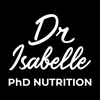HEALTHY SKIN THROUGH DIET

HEALTHY SKIN THROUGH DIET
Discover the foods to put on the menu!
Diet plays an important role in maintaining healthy skin. Macronutrients (carbohydrates, proteins and lipids) and micronutrients (vitamins and minerals) help maintain the structure and appearance of the skin. On this subject, different actions taken daily help to make you look radiant. In this regard, diet, all lifestyle habits and skin care can help make your skin healthy and luminous. Ready to learn best practices
The general nutritional needs of the skin
Before getting to the heart of the matter, let's focus on the needs of our skin and the roles of nutrients on it. To this end, although we often talk about the relevance of vitamins and minerals on the latter, did you know that macronutrients play a key role in the balance of our epidermis Here are some points to consider::
- Glucose is the main source of energy for skin cells.
- Amino acids (a portion of proteins), carbohydrates and phospholipids are involved in the production of lipids present in the outer layer of the epidermis, such as sterols and ceramides. These are essential in maintaining a well hydrated skin!
- Vitamins and minerals are among the nutrients that support the structural components of the skin.
- Antioxidants are important for the skin, which is constantly exposed to different oxidants, such as ultraviolet (UV) rays.
minerals and skin
At the mineral level, meeting the recommended nutrient intake (RDA) is important for the development and maintenance of healthy skin, but there is little evidence to support oral supplementation. However, research observes that oral administration of L-selenomethionine, an amino acid containing selenium, may protect the skin from damage caused by UV rays.
Flavonoids and the skin
Flavonoids are antioxidant components naturally present in plants. Research on flavonoids in the area of skin health focuses primarily on the photoprotective effects of polyphenols, catechins and genistein, the latter of which have been shown to anti-aging properties, mainly related to damage caused by sun exposure. Polyphenols act against the propagation of free radicals generated by exposure to various factors such as stress, pollution, sun, cold or various external aggressions.
What to put on the menu: Green tea, cocoa, berries, grapes, wine and green vegetables
vitamins and skin
Both vitamin C and vitamin E act as antioxidants in the skin. Vitamin C also contributes to the synthesis of collagen and is essential for good wound healing. Studies suggest that oral supplementation using vitamin C and vitamin E in combination may help prevent UV damage. Other studies also observe that higher dietary intakes of vitamin C are linked to better skin appearance, with fewer wrinkles. These effects are demonstrated both in connection with the oral intake of vitamins via food, and by topical exposure by aesthetic products, the combination between the two being therefore optimal.
To put on the menu: Peppers, citrus fruits, broccoli, strawberries, nuts, seeds, olive oils or cold-pressed canola, etc.
Essential fatty acids and the skin
Thanks to a fluid structure, fatty acids contribute to the suppleness, hydration and protection of the skin. What's more, studies indicate that dietary supplementation with certain omega-3s can reduce UV damage, signs of skin aging, and inflammatory responses in the skin. Other studies also observe that dietary supplementation with certain omega-6s can alleviate symptoms associated with skin sensitivity and inflammatory skin disorders. Finally, studies report that higher dietary intakes of essential fatty acids are associated with younger-looking skin and better photoprotection.
To put on the menu: Oily fish (mackerel, salmon, trout, sardines), flax or chia seeds, cold-pressed canola oil, camelina oil, etc.
To conclude, it is interesting to note that these effects aredemonstrated both in connection with the oral intake of vitamins via food, and by topical exposure by aesthetic products, the combination between the two being therefore optimal. Combining a quality diet with nutritious products for the skin will therefore allow you to radiate with healthy and radiant skin!
@Jacqueline : Bonjour Jacqueline, merci pour votre commentaire! Effectivement, il pourrait être intéressant de prendre rendez-vous avec une nutritionniste. N’hésitez pas à nous appeler pour prendre rendez-vous : 1 877-761-5456. En ce qui concerne le collagène, je vous invite à consulter cet aticle : https://juliedesgroseilliers.com/les-supplements-de-collagene-une-promesse-marketing-ou-de-reels-bienfaits-pour-la-sante/
Merci à vous qui prenez le temps de m’instruire sur les bienfaits de l’alimentation. J’aimerai savoir qu’est-ce que vous pensez des annonces de collagène. Je suis un peut perdu dans tout ça je crois même faire à faire a une nutritionniste pour maintenir une bonne alimentation. Merci bonne journée.
@Gérald : Bonjour Gérald, merci énormément pour votre beau commentaire! :)
Bonjour Isabelle , et merci pour tout les renseignements ce que tu donne gratuit ,surtout pour la peaux , les légumineuse c’est fantastique , j’aime te suivre dans tout tes chroniques , merci d’être là ,











4 comments